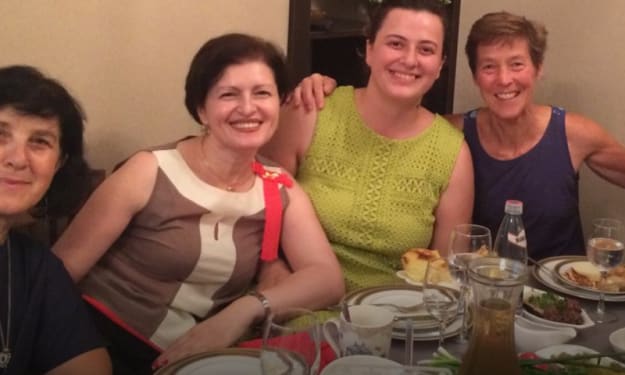Listening to Dreams
Whether random neurological firings or magical messages from the subconscious, dreams talk

I believe in dreams. Not goal-setting ambitious dreams but the sleeping ones that mix memories and future thoughts not yet fully formed, all together in moving pictures.
Most my dreams are forgotten before I wake. Or dissipate like mist as I’m waking and the more I try to grab hold of them the faster they evaporate.
A few dreams come to me so vivid and visceral and alive that I wake from them unsure of the divide between sleep and waking life. For a few seconds the difference is blurry. And sometimes, I might catch myself days later wondering whether a fleeting memory is of an actual event or of a dream, and if there is a difference. These sharp-drawn dreams stay with me for days, and a few have lasted decades, always ready for replay in my mind. I had one decades ago, when I was 20 or 21 years old living in England, that stays with me still.
I was walking with a group of family and friends over intensely green rolling hills. It looked like the English countryside near Bath. The sky was an eerie grayish purple color like dusk, but not dusk. Enough light remained that the hillsides and the scattering of people in the distance and the kites they flew appeared in brilliant saturated colors.
I realized we were all there to fly kites and I launched the most beautiful kite I’d ever seen. It looked something like a Japanese fighting fish with long floating tail and fins made of layers of translucent iridescent silk fabrics in pinks, oranges and yellows. It shimmered against the dark sky.
The next thing I knew the kite jerked hard. I almost lost hold of it. It jerked again. I didn’t know what was going on. Someone explained that these were fighting kites. I realized then that all the kite strings reaching up through the sky were coated with fine, broken, glass and the fliers were trying to cut each others’ kite strings. I tried to reel my kite in. I didn’t want to fight. And I really didn’t want to lose the kite. But it was too late. I felt a final tug and then the limp string dropped to the ground and my fish kite went flying off into the sky. Upset, I buried my face in my hands and started to cry. People shouted and I looked up to see, to my utter astonishment, the fish kite swimming back through the sky toward me. I dropped my arms, elbows bent and palms face up, and the fish kite settled into the crook of my elbows almost like a newborn baby.
In awe of this beautiful kite, I ran to show my mother. I found her in a green garden standing on a white stone plinth surrounded by broken shards of stone. She was a white stone statue with no arms, like Venus de Milo except her eyes were alive. They turned to look at me.
I woke up terrified and amazed by the dream.
My relationship with my mother was complicated and intense and difficult to make sense of, and this dream was the first inkling I ever had to begin to untangle — or at least see — it for what it was.
Years later, I was walking down Fifth Avenue in New York City when the sky turned the color of that dream. It was the most extraordinary thing I’d ever seen. I stopped in my tracks. A lot of people did. Strangers talked to each other. A girl, about my own age, stopped and asked in voice full of wonder, “What is happening?” Maybe she thought it was the end of the world or maybe she thought she was hallucinating. She sounded slightly scared. “This is the color of my dreams,” I responded and immediately realized that information was not particularly helpful so added, “I think it might be an eclipse.”
A few blocks and more minutes later, my guess was confirmed by a friend, a photographer who’d read the morning paper and described the eerie dreamy light as containing magenta hues. Before the days of the internet, people could still be surprised and taken aback by an eclipse. I can only imagine how in ancient times the movements of moons and stars and planets must have seemed utterly miraculous.
And maybe they had it right.
Naming an astronomical event makes it feel less supernatural. But I want to remain in awe of these super natural surroundings I stumble through, these waking dreamscapes.
About the Creator
Vivian R McInerny
A former daily newspaper journalist, now an independent writer of essays & fiction published in several lit anthologies. The Whole Hole Story children's book was published by Versify Houghton Mifflin Harcourt, 2021. More are forthcoming.






Comments
There are no comments for this story
Be the first to respond and start the conversation.